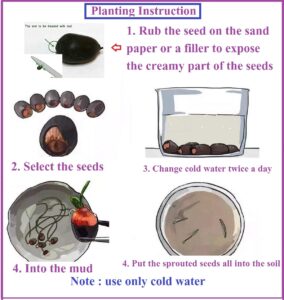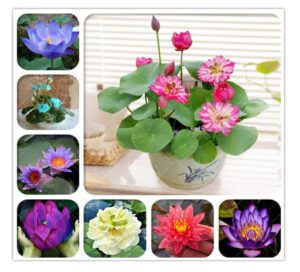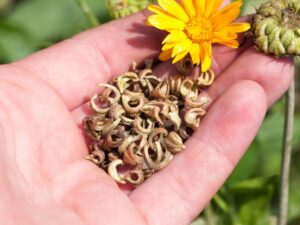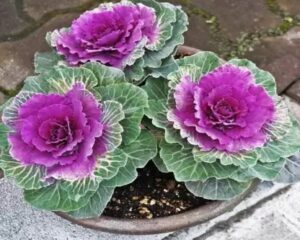Introduction
Welcome to our comprehensive guide on how to grow lotus seeds successfully. Lotus flowers are not only beautiful but also hold significant cultural and symbolic meanings in various societies. Cultivating lotus seeds can be a rewarding and fulfilling experience, but it requires patience, attention to detail, and the right techniques. In this guide, we will provide you with step-by-step instructions, tips, and insights to help you embark on your journey of lotus seed cultivation.

Understanding Lotus Seeds
Before diving into the cultivation process, it’s essential to understand the nature of lotus seeds. Lotus seeds come from the Nelumbo nucifera plant, commonly known as the sacred lotus or Indian lotus. These seeds are small, round, and hard, resembling the shape of a water droplet. Lotus seeds are typically found in the seed pod of the lotus flower, which emerges from the water.
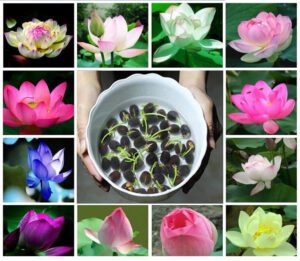
Selecting Quality Lotus Seeds
The first step in growing lotus seeds is to ensure you have high-quality seeds. When selecting lotus seeds, look for ones that are firm, plump, and intact. Avoid seeds that appear damaged, discolored, or shriveled, as they may not germinate successfully. It’s also advisable to purchase seeds from reputable suppliers to increase the chances of success.
Buy Lotus Seeds – https://rickon.in/product-category/gardening/

Step 1: Scarification
Lotus seeds have a hard outer shell that can inhibit germination. To overcome this barrier, a process called scarification is necessary. Begin by gently rubbing the seed coat with sandpaper or a file to create small scratches on the surface. This allows water to penetrate the seed more easily, promoting germination.

Step 2: Soaking
After scarification, soak the lotus seeds in warm water for 24 to 48 hours. This helps soften the seed coat and encourages the initiation of the germination process. Change the water every 12 hours to prevent mold or bacterial growth.
Planting Lotus Seeds
Step 1: Choosing a Container
Select a wide, shallow container with drainage holes at the bottom. Fill the container with nutrient-rich soil specifically formulated for aquatic plants. Alternatively, you can use a mixture of loamy soil and compost.
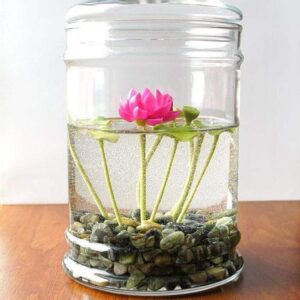
Step 2: Planting Depth
Plant the lotus seeds approximately 1 inch deep in the soil, ensuring they are spaced evenly apart. Gently press the seeds into the soil to secure them in place.
Step 3: Watering
Once planted, fill the container with water until the soil is thoroughly saturated. Maintain a water level of 1 to 2 inches above the soil surface throughout the germination process.

Providing Optimal Growing Conditions
Lotus seeds require specific environmental conditions to thrive and germinate successfully. Here are some essential factors to consider:
- Temperature: Lotus seeds prefer warm temperatures between 75°F to 85°F (24°C to 29°C) for optimal germination.
- Light: Place the container in a sunny location with at least 6 to 8 hours of sunlight per day.
- Water Quality: Use clean, filtered water to prevent contaminants that may hinder seed germination.
- Nutrients: Consider adding a liquid fertilizer formulated for aquatic plants to provide essential nutrients for growth.

Monitoring Growth and Development
After planting lotus seeds, monitor their progress regularly. Germination typically occurs within 1 to 4 weeks, depending on environmental conditions and seed quality. Look for signs of sprouting, such as tiny shoots emerging from the soil.

Transplanting Seedlings
Once the lotus seedlings have developed several leaves and roots, they are ready for transplanting into larger containers or outdoor ponds. Carefully remove the seedlings from the original container, taking care not to damage the delicate roots. Plant them in nutrient-rich soil and provide adequate water and sunlight to promote healthy growth.
Conclusion
Growing lotus seeds can be a rewarding and enriching experience for gardening enthusiasts. By following the steps outlined in this guide and providing the necessary care and attention, you can successfully cultivate beautiful lotus plants from seeds. Remember to be patient, as lotus seeds may take some time to germinate and establish themselves. With dedication and perseverance, you can enjoy the beauty of lotus flowers in your garden or aquatic landscape.
